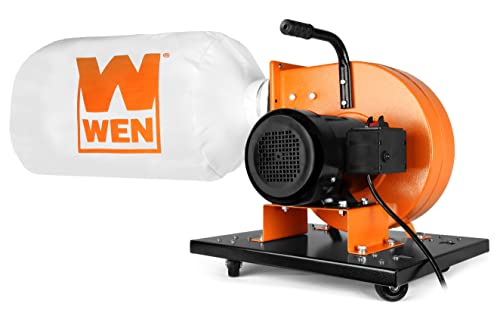Are you looking for a compact and reliable shop jointer? Then you’ve come to the right place! With a small shop jointer, you’ll be able to save a lot of space in your workshop while still getting the same results as a larger model. Plus, this type of jointer is usually more affordable than the other options.
What’s so great about a small shop jointer? Well, for starters, it’s lightweight and easy to maneuver. You won’t have to worry about lugging around a heavy piece of machinery. Plus, it’s perfect for smaller projects, like edge-joining boards and trimming edges.
I can personally attest to the power and accuracy of a small shop jointer. I have one in my own workshop and it has been a godsend. I’m able to get perfect, straight edges in a fraction of the time it takes with a manual jointer. Plus, I know I can trust it to do the job right without fail.
If you’re looking for a reliable shop jointer, look no further than a small shop jointer. With its lightweight design, it’s perfect for smaller projects and won’t take up too much space in your workshop. Plus, it’s usually more cost-effective than the larger models.
The 3 Best Small Shop Jointer Reviews
Shop Fox W1876 6″ Benchtop Jointer with Spiral-Style Cutterhead

You’re in luck if you’re looking for a reliable benchtop jointer! The Shop Fox W1876 6″ Benchtop Jointer with Spiral-Style Cutterhead is a great choice. The 1 1/2 HP motor is powerful and runs on 120V/Single-Phase/10A. It can take a maximum width of 6 inches and a maximum depth of 1/8 inch. The 12,000 RPM cutterhead is spiral-style with 12 inserts and the table size is 6-1/4 x 30. It also has a dust port size of 2-1/2 inches and its dimensions are 30 x 17-1/2 x 13-1/2 inches. The carbide insert size is 14mm x 14mm x 2mm.
Overall, the Shop Fox W1876 6″ Benchtop Jointer is a great tool for woodworking projects. It’s sturdy, powerful, and easy to use. The 12,000 RPM cutterhead ensures a smooth finish to your work, and the 2-1/2 inch dust port makes it easy to keep the workspace clean. Plus, the carbide insert size is a great feature for precision cutting.
The only downside is that it doesn’t accommodate wider or deeper cuts, so if you’re looking for a jointer for larger projects, this might not be the right fit. Other than that, this is an excellent tool for any workshop.
Shop Fox W1829 Benchtop Jointer

You’ll love the Shop Fox W1829 Benchtop Jointer for its powerful 1-1/2 horsepower, 110V, 12 amp, single-phase motor and its 10,000 RPM, 20,000 cuts per minute cutter head speed. The two-knife HSS cutter head provides clean cuts, while the fully adjustable aluminum fence with stops keeps your projects secure. The 2-1/2-inch dust port is a great addition, keeping your work area clear of dust, and the free pair of safety push blocks and built-in mini impeller-driven dust collection fan and collection bag are great bonuses.
Pros:
- Powerful 1-1/2 horsepower, 110V, 12 amp, single-phase motor
- 0,000 RPM, 20,000 cuts per minute cutter head speed
- Two-knife HSS cutter head provides clean cuts
- Fully adjustable aluminum fence with stops
- /2-inch dust port
- Free pair of safety push blocks
- Built-in mini impeller-driven dust collection fan and collection bag
Cons:
- Cutterhead diameter is only 1-7/8 inch, so it may not be able to accommodate larger projects.
Shop Fox W1857 8″ Dovetail Jointer with Mobile Base

If you’re looking for a reliable jointer, then the Shop Fox W1857 8″ Dovetail Jointer with Mobile Base is definitely worth checking out. The sturdy cabinet stand with built-in mobile base ensures a stable, steady performance each time, while the beds slide on dovetailed ways for smooth and precise adjustments. You can also adjust the tables with a hand wheel and depth gauge, and the pedestal-mounted power switch makes it easy to access the machine.
The centerpiece of this jointer is the center-mounted fence, which is great for keeping your pieces stable and secure. There are also 4 cutter head knives and a super long 6′ table, giving you plenty of room to work with.
Overall, the Shop Fox W1857 8″ Dovetail Jointer with Mobile Base is a great option for anyone who wants a reliable and versatile jointer. The cabinet stand and mobile base provide you with stability, while the various features such as the center-mounted fence, cutter head knives and long table offer lots of convenience and options. The only downside is that it’s a bit pricier than other models.
Buying Guide
If you’re in the market for a small shop jointer, you’re in luck! With so many options out there, you can find the perfect fit for your small shop needs. Here are some tips to help you make the right decision.
First, consider your budget. Jointer prices range from a few hundred dollars to several thousand. Determine what you can afford and look for models that meet your needs in that price range. Make sure you read user reviews to get an idea of which models perform best.
Next, consider the size of your shop. If you have limited space, look for models that have a small footprint and that fold away for easy storage. Also, if you plan to move the jointer around often, look for a model that’s lightweight and portable.
Finally, think about the type of material you will be jointing. If you plan to joint hardwoods, choose a model that has powerful blades. Also, make sure the jointer has adjustable fences and a reliable dust collection system to keep your shop clean.
These tips should help you find the perfect small shop jointer for your needs. Once you make your purchase, make sure you read the user manual carefully before using the machine.
Our Recommendations Go Head-to-Head
No products found.
Frequently Asked Questions
What size material can a small shop jointer handle?
A small shop jointer can typically handle materials up to 6 inches wide and 1/2 inch thick. The exact size depends on the model, so you should check the specs or ask the manufacturer for more details. With the right jointer, you can create smooth, flat boards for your projects.
How do i adjust the depth of cut on a small shop jointer?
To adjust the depth of cut on a small shop jointer, start by loosening the adjustment knob located on the front of the jointer. Then, adjust the outfeed table to the desired depth. Finally, tighten the knob to ensure the outfeed table stays in place.
What is the difference between a jointer and a planer?
A jointer is a woodworking tool used to straighten and flatten boards. It works by passing a board over a flat surface with cutting blades to make the edges uniform. A planer, on the other hand, is used to cut boards to a consistent thickness. It works by passing a board through a set of rollers which shave off any excess material. In summary, a jointer is used to straighten and flatten boards while a planer is used to cut boards to a consistent thickness.
What type of blades does a small shop jointer use?
A small shop jointer typically uses straight blades. These blades are usually between 6 and 8 inches long and are made with premium-grade steel. They are designed to provide a smooth, clean cut and ensure an even finish on your workpiece.
How do i properly maintain a small shop jointer?
Properly maintaining your small shop jointer is essential for ensuring it runs properly and lasts a long time. To do this, start by cleaning it regularly with a damp cloth or compressed air. Also, make sure to lubricate the blades and jointer bed with a light oil every month. Additionally, check all the bolts and screws periodically to make sure they’re tight and replace any worn parts as needed. Lastly, run a blade alignment check every few months to ensure the blades are cutting evenly. Following these tips will help you keep your small shop jointer in top shape.

Conclusion
Congratulations! You have just taken the first step in becoming a small shop jointer! You now have the tools to form joints that are both strong and aesthetically pleasing. No matter your experience level, you can now give your projects the professional touch they deserve.
You’ve come a long way since you first started researching jointers. Now that you’ve chosen a model, you can start to practice setting up boards and learning the different types of joints.
Thanks to the information you’ve gathered, you’re better equipped to make the most of your new jointer. With a little bit of patience and practice, you’ll soon be crafting stunning joints with ease.
Last update on 2023-09-30 / Affiliate links / Images from Amazon Product Advertising API
